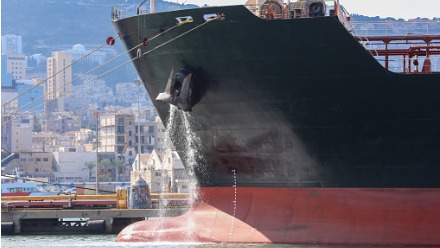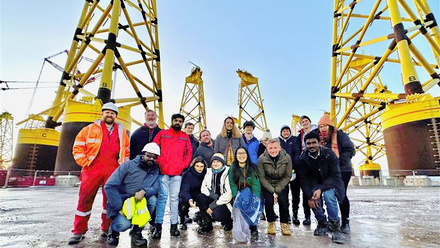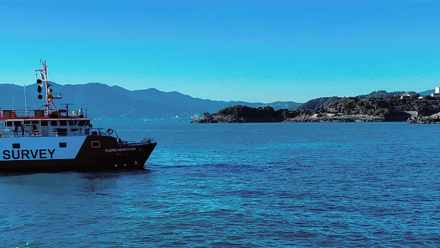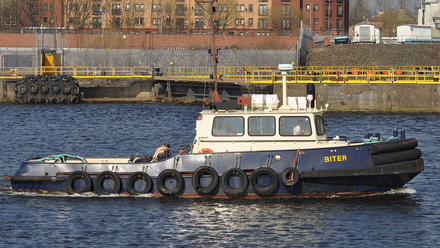The growing number of abandoned vessels
A “worrying increase” in vessel and crew abandonment was highlighted by the International Transport Workers’ Federation (ITF), leading to calls for greater punitive measures against perpetrators alongside enhanced sector collaboration in mitigation.
Compared to 2022, the ITF recently noted an 11% increase to 132 abandonments in 2023, with owed wages among the 129 cases reported specifically amounting to US$12.1 million.
ITF Inspectorate Coordinator Steve Trowsdale says abandonment occurs most commonly either when a vessel is in port or in the form of seafarers going unpaid when continuing to operate onboard. General cargo ships, bulk carriers and smaller vessels such as tugs are the most often involved.
“Unfortunately, there are no punitive measures that can be taken against an owner when they abandon their crews, unless it is a vessel arrest by a debtor,” Trowsdale explains.
“The Maritime Labour Convention (MLC) provides requirements and guidelines for owners, flag and port states. There needs to be a system of punitive measures taken against these entities who take no responsibility irrespective of whether they [are] ratified [by] the MLC or not.”
As a prime example, he highlights that the St Kitts & Nevis (SKAN) ship registry last year “evaded its responsibility” to over 30 seafarers by deregistering three ships on which they were abandoned. “No punitive action can be taken against the flag other than us making it public,” states Trowsdale.
On a positive note, Trowsdale believes the increase in reported figures can in part be attributed to “greater awareness by seafarers on what constitutes abandonment and the ITF pressing seafarers to report non-payment of wages as early as possible.
“This, coupled with robust ITF internal procedures on the identification and reporting of abandonment,” he confirms.
IMarEST’s Head of Technical and Policy, Peter Sheppard, says vessel abandonment is not just a humanitarian issue but also a threat to maritime safety, environmental protection and the reputation of the industry as a whole.
“IMarEST remains committed to advocating for the rights of seafarers and collaborating with stakeholders to find sustainable solutions to tackle this pressing challenge,” he says.
“Immediate action is imperative to address the plight of abandoned seafarers and prevent future occurrences. This requires collaboration among maritime stakeholders, including governments, international organisations, industry associations and labour unions.”
Sheppard believes the increasing number of abandonments is “likely a combination of insufficient deterrence to dissuade shipowners from abandoning vessels and inadequate regulatory enforcement to address such situations effectively”.
He says the following key actions should be considered:
- Strengthening regulatory frameworks – enhancing enforcement mechanisms and penalties for non-compliance with the MLC to deter shipowners from abandoning vessels or neglecting crew welfare.
- Improving financial security measures – implementing mechanisms such as financial guarantees or insurance requirements to ensure that shipowners have sufficient funds to cover crew wages and repatriation costs.
- Enhancing industry oversight – increasing transparency and accountability in vessel operations through regular inspections, audits, and monitoring of shipowners' financial viability.
- Providing support to affected seafarers – establishing emergency response mechanisms to supply immediate assistance, including legal aid, repatriation support and access to essential services for abandoned seafarers.
- Promoting industry best practices – encouraging responsible business practices and corporate social responsibility among shipowners through awareness campaigns, training programs, and industry standards.

Describing the trend as “indeed concerning”, International Maritime Organization’s (IMO) Public Information Services Head, Natasha Brown, notes her organisation’s legal committee is currently considering two relevant submissions.
“Abandonment is a worrying problem which impacts seafarers and their families,” says Brown.
Ongoing, joint work on the issue between the IMO and the International Labour Organization (ILO) has progressed a number of initiatives, adds Brown. These include:
- Guidelines on the provision of financial security in case of abandonment of seafarers (adopted in 2001).
- Amendments to the MLC 2006 concerning financial security in cases of abandonment (during 2014).
- Guidelines for port and flag state authorities on how to deal with seafarer abandonment cases (adopted in 2022-2023).
“We did see an increase in cases reported following the amendments to the ILO MLC 2006, concerning financial security in cases of abandonment, which may in fact reflect that these regulations came into effect.
“The 2014 amendments require that a certificate or other documentary evidence of financial security has to be issued by the financial security provider of the shipowner. This certificate has to be carried onboard the ship,” confirms Brown.
Brown notes the guidelines adopted in 2022-2023 set out procedures to be taken by flag states if a shipowner fails to fulfil its obligations to:
- Arrange and cover the cost of repatriation of seafarers.
- Pay outstanding wages and other contracted entitlements.
- Commit to the provision of essential needs, including medical care.
“In these circumstances seafarers are then considered abandoned. These procedures include developing, in cooperation with seafarers’ and shipowners’ organisations, national standard operating procedures (SOPs) to explicitly define the liabilities and obligations of the competent authority and the roles to be played by the various national stakeholders,” Brown concludes.

International Chamber of Shipping (ICS) Director (Employment Affairs), Helio Vicente, says his organisation’s position is “crystal clear” that “one case of abandonment is one too many”.
“It is also important to consider this issue in the wider context of the nearly two million seafarers worldwide, the vast majority of which do not have these experiences, due to the effectiveness of the ILO MLC enforcement mechanisms globally,” he says.
“Nevertheless, the available data lays bare how the actions of a small number of [bad] actors ultimately impacts an entire industry, in which the overwhelming majority complies with the established universal rules, because it is the right thing to do.”
To tackle matters, Vicente emphasises the need for “effective collaboration and transparency” between key sector stakeholders. In this regard, he notes the ICS has played a proactive role in guidelines development and other initiatives and moves to ensure relevant authorities are notified of any cases of abandonment brought to its attention.
“Concrete steps need to be taken to increase the general awareness of abandonment and regions where seafarers are at higher risk of potentially being abandoned should be identified, for more coordinated and targeted action at global level.
“Around 50% of seafarer abandonment cases, reported in 2022, could have been avoided or resolved sooner, if the states concerned were party to the MLC,” Helio reveals.
In conclusion, Vicente says attracting new seafarers as well as retaining the current workforce requires “meaningful actions from all relevant actors, to implement what is agreed internationally”.
“ICS is fully committed to continuing to work with our seafarer union partners and governments to address and eliminate abandonment, which detrimentally affects the livelihoods and wellbeing of seafarers and their families.”
Main image: Abandoned cargo ship in Umm Al Quwain, United Arab Emirates; credit: Shutterstock
In-line images: Peter Sheppard, Head of Technical and Policy at IMarEST; credit: IMarEST (top right) Helio Vicente, International Chamber of Shipping (ICS) Employment Affairs Director; credit: ICS (bottom left)





